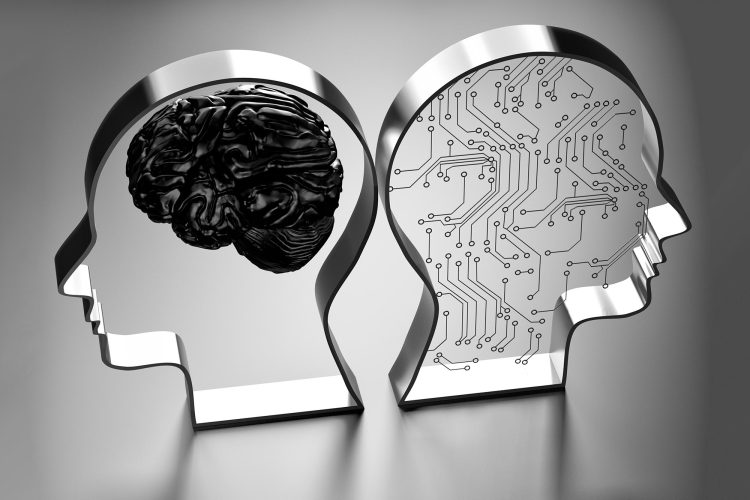Introduction
Artificial Intelligence (AI) is no longer a futuristic fantasy—it’s woven deeply into the fabric of our daily lives. From virtual assistants and recommendation engines to autonomous vehicles and automated decision-making in finance and healthcare, AI systems impact millions worldwide. But as these systems grow more sophisticated and autonomous, a thorny question emerges: When AI lies, who’s responsible?
Lying, a concept traditionally tied to human intent, becomes complex in AI’s context. Can AI even lie? If it can, does responsibility lie with the creators, users, or the AI itself? This article dives deep into these questions, exploring legal, ethical, technical, and philosophical perspectives on AI deception.
Defining AI Lies: What Does It Mean for AI to “Lie”?
Before assigning blame, we must clarify what “lying” means when an AI is involved.
Human lying usually involves:
- Intentionality: The liar knowingly conveys false information.
- Awareness: The liar understands the truth but chooses to mislead.
- Purpose: The lie serves a goal, whether malicious, protective, or strategic.
AI systems, however, lack consciousness and intent. They generate responses based on data patterns, algorithms, and probabilistic reasoning, not beliefs or desires. So when an AI outputs false information, is it lying? Or is it simply “misinformation” or “error”?
Types of AI Falsehoods
Falsehoods in AI can take several forms:
1. Unintentional Errors
AI systems trained on incomplete or biased data can generate wrong answers without malice—simply a byproduct of flawed input or algorithms.
Example: An AI medical diagnosis tool misclassifies symptoms due to limited training data on certain demographics.
2. Hallucinations
Large language models (LLMs) like ChatGPT occasionally fabricate facts or references confidently—a phenomenon called hallucination.
Example: An AI citing a non-existent research paper to support a claim.
3. Manipulative Lies
Some AI tools are designed to deceive—for instance, deepfake generators creating fake videos or chatbots mimicking human behavior to manipulate.
Example: AI-generated fake news targeting public opinion or stock markets.

Who’s Responsible?
Now, to the crux of the issue: who takes the fall when AI lies?
1. Developers and Programmers
The creators shape the AI’s capabilities, limitations, and safeguards.
- Data Curation: Biased or incomplete datasets can cause AI to “lie” or misinform.
- Algorithm Design: Flawed architectures can increase error or hallucination rates.
- Intentional Programming: Some developers embed deception in AI (e.g., chatbots designed to simulate empathy or persuade users).
Responsibility: Developers bear significant responsibility for ensuring AI systems are transparent, reliable, and free from malicious functions.
2. Deployers and Operators
Companies or individuals deploying AI systems decide how and where the AI is used.
- Are users informed about AI limitations?
- Is AI output monitored or audited?
- Is the AI deployed in sensitive or high-stakes environments?
Responsibility: Those who use AI systems must evaluate risks and implement oversight to prevent harm.
3. End-Users
Users interpreting AI output without critical evaluation may amplify misinformation.
Example: Sharing AI-generated false news on social media without fact-checking.
Responsibility: Users need digital literacy and skepticism to avoid blindly trusting AI.
4. Regulators and Policymakers
Governments and institutions establish legal frameworks defining accountability for AI-induced harm.
- Laws about data privacy, misinformation, and liability.
- Guidelines for AI transparency and explainability.
- Enforcement mechanisms for AI malfeasance.
Responsibility: Regulators set boundaries and consequences but struggle to keep pace with rapid AI innovation.
5. The AI Itself?
Some futurists and ethicists speculate about AI personhood or agency, pondering if advanced AI could bear responsibility. Currently, AI lacks consciousness and moral understanding, so legal responsibility remains with humans.
Legal Landscape: Accountability in AI Falsehoods
The Challenge of Existing Laws
Traditional liability frameworks often don’t neatly apply to AI:
- Product Liability: Manufacturers are liable for defective products causing harm. But AI’s unpredictability and learning capacity complicate “defect” definitions.
- Negligence: Can developers be negligent if an AI makes unforeseen errors? Proving foreseeability is tricky.
- Defamation and Fraud: Laws against lying generally target humans or entities, not machines.
Emerging Legal Approaches
- Strict Liability Models: Holding developers/operators accountable regardless of fault, encouraging proactive safety.
- Mandatory Transparency: Requiring AI systems to disclose their non-human nature and limitations.
- AI Audits and Certification: Independent evaluations before deployment.
Countries like the EU are pioneering AI regulations (e.g., the AI Act) with risk-based obligations. The U.S. is more fragmented but increasing scrutiny.
Ethical Dimensions: Beyond the Law
Legal responsibility is necessary but not sufficient. Ethical considerations shape AI trustworthiness:
Transparency and Explainability
Users deserve clear understanding when AI systems make recommendations or decisions. Deception erodes trust.
Beneficence and Non-Maleficence
AI should aim to do good and avoid harm—including harm from misinformation.
Accountability and Redress
When AI causes harm, mechanisms for remedy and correction must exist.
Technical Strategies to Mitigate AI Lies
AI research is actively developing tools to reduce falsehoods:
- Robust Training Data: Ensuring diversity and accuracy in datasets.
- Fact-Checking Modules: Integrating real-time verification systems.
- Explainable AI (XAI): Designing models that justify outputs.
- Human-in-the-Loop: Combining AI speed with human judgment.
Despite progress, perfect truthfulness remains elusive in complex, uncertain domains.
Psychological and Social Impact of AI Lies

Falsehoods from AI can have wide-reaching consequences:
- Erosion of Trust: Users losing faith in AI and technology overall.
- Amplification of Misinformation: AI-generated fake news or deepfakes influencing elections, health decisions.
- Manipulation and Exploitation: Bad actors leveraging AI lies for scams or propaganda.
Education, media literacy, and resilient social systems are critical defenses.
Case Studies
Case 1: Chatbot Misinformation
An AI-powered customer service bot provided incorrect financial advice, leading to losses. The company admitted poor training and lack of human oversight.
Lesson: Developers and deployers share blame; users also must verify important advice.
Case 2: Deepfake Political Videos
AI-generated videos falsely depicting politicians in compromising situations spread widely on social media.
Lesson: Responsibility lies with creators of malicious AI, platforms enabling distribution, and users who share without verification.
Case 3: Medical AI Diagnosis Error
An AI diagnostic tool failed to detect a rare disease in minority patients due to underrepresented training data.
Lesson: Developers must ensure data diversity; healthcare providers must treat AI as advisory, not definitive.
Philosophical Reflections: Can AI Lie in a Moral Sense?
Philosophers debate whether lying requires consciousness, intent, and moral agency—qualities AI lacks.
Some argue AI simulates lying without understanding; others claim the social consequences matter more than intent.
Is it enough to label AI “liar” based on output impact? Or should we redefine lying in the AI era?
Future Directions and Recommendations
To manage AI deception, a multi-faceted approach is needed:
- Stronger Regulations: Clear legal frameworks for AI accountability.
- Ethical AI Design: Embed truthfulness, transparency, and fairness from inception.
- Public Awareness: Promote critical thinking about AI outputs.
- Collaborative Oversight: Involve developers, users, regulators, and ethicists.
- Continued Research: Improve AI reliability and interpretability.
Conclusion
AI systems are powerful tools with the potential to inform, assist, and transform society. Yet when AI lies—whether through error, hallucination, or manipulation—responsibility cannot be pinned on the machine itself. Instead, it rests with a network of human actors: developers who design the algorithms, deployers who decide how AI is used, users who interpret outputs, and regulators who enforce standards.
Navigating this new ethical and legal frontier demands cooperation, vigilance, and a commitment to transparency. Only then can we harness AI’s promise while minimizing the perils of deception.











































Discussion about this post